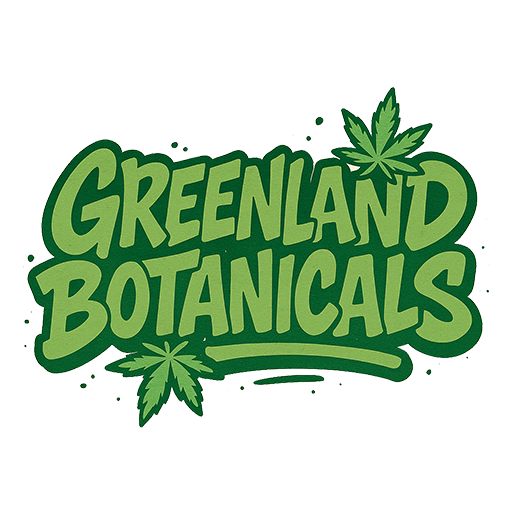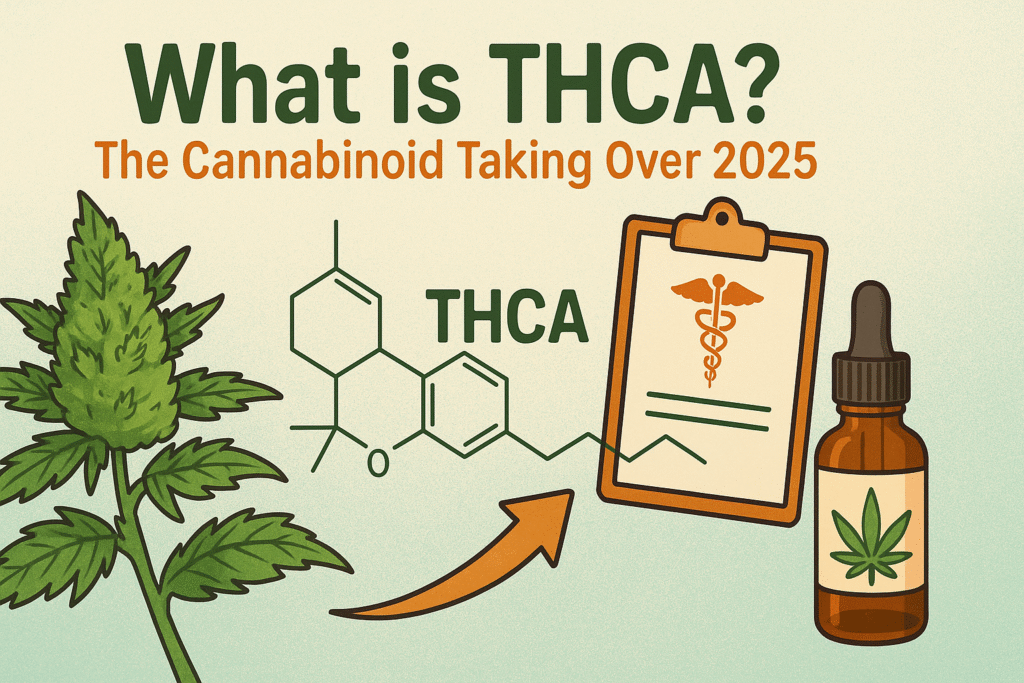Uncategorized
What is THCA
What is THCA? The Cannabinoid Taking Over 2025
In the fast-evolving world of cannabis, new cannabinoids seem to steal the spotlight every year. In 2025, Tetrahydrocannabinolic acid is the name on everyone’s lips—from seasoned smokers to wellness seekers and even mainstream medical researchers. But what exactly is THCA, and why is it suddenly everywhere? Let’s break it down in plain terms, explore why it matters, and see why it’s becoming the most talked-about cannabinoid of the year.
THCA: The Raw Power Behind THC
To put it simply, THCA (tetrahydrocannabinolic acid) is the non-psychoactive precursor to THC, the compound we all associate with getting high. Found in raw, freshly harvested cannabis, Tetrahydrocannabinolic acid is what THC looks like before it’s heated. That means when you consume raw cannabis (think fresh buds or leaves), you’re mostly getting THCA—not THC.
The transformation happens through a process called decarboxylation, which usually occurs when cannabis is heated—by smoking, vaping, or baking. Once heated, THCA sheds its acid molecule and becomes THC, the cannabinoid responsible for that euphoric, psychoactive experience.
So Why All the Hype in 2025?
The buzz around THCA in 2025 isn’t just about chemistry—it’s about access, legality, and versatility. Here’s what’s driving the surge:
- Legal Loopholes: In many U.S. states and parts of Canada, THCA-rich hemp is technically legal if it contains less than 0.3% delta-9 THC. That means dispensaries and online shops can sell THCA flower that looks, smells, and feels like high-THC weed—but it’s federally compliant. Once you light it up, though? It hits just like regular THC.
- Medical Potential: Research is picking up speed on THCA’s non-intoxicating benefits. Studies suggest it may help with inflammation, nausea, arthritis, and neurodegenerative disorders like Parkinson’s and Alzheimer’s. The best part? You get these effects without the high, which appeals to wellness users and medical patients alike.
- Versatile Consumption: THCA can be juiced raw, taken as a tincture, sprinkled into smoothies, or even used in skincare products. This flexibility makes it popular among health-conscious users who want the therapeutic effects of cannabis without altering their mental state.
What Does THCA Feel Like?
Raw THCA doesn’t produce a high. If you eat it or use it in raw form, you’ll get anti-inflammatory and neuroprotective benefits, but not the euphoric effects of THC. That said, once you heat it—like in a joint, dab rig, or oven—it becomes fully active THC and behaves just like any other strong strain.
So in a way, THCA flower offers the best of both worlds: a product that’s technically legal in many places, yet delivers the same punch as traditional cannabis when heated.
Is THCA Legal in Canada?
This is where things get interesting. Under Canadian cannabis laws, the definition of THC includes all its variants, including THCA. So while you can find Tetrahydrocannabinolic acid -rich products in licensed dispensaries, they’re regulated just like high-THC cannabis. That means you’ll need to buy from a legal source—like Greenland Botanicals—to stay compliant.
In the U.S., THCA sits in a much greyer area, especially online. Some vendors ship THCA flower across state lines under the 2018 Farm Bill, but this loophole is under increased scrutiny in 2025. Always check your local laws before ordering.
How to Use THCA in Real Life
Want to try THCA for yourself? Here are a few ways real people are using it:
- Raw wellness shots: Health lovers are blending THCA-rich cannabis leaves into green juices for anti-inflammatory benefits.
- Low-temp dabs: Concentrate fans are dabbing Tetrahydrocannabinolic acid diamonds for a potent, clean high.
- Tetrahydrocannabinolic acid flower: This is the most popular form in 2025. It looks like regular weed but is federally legal in many areas.
- Skincare creams: Topical formulations are being used for localized pain relief and skin conditions.
If you’re just starting out, Tetrahydrocannabinolic acid flower is a great place to begin. It offers full flexibility: smoke it for the high, or use it raw for wellness.
Should You Try THCA?
If you’re looking for a cannabis experience that’s flexible, potentially legal, and powerful, Tetrahydrocannabinolic acid is absolutely worth exploring. It’s become the go-to choice for people who want control over their experience—whether you’re microdosing for health or enjoying a full-on recreational session.
For Canadians, THCA products can be found at trusted dispensaries like Greenland Botanicals, which offers lab-tested, high-quality options delivered straight to your door.
5 FAQs About THCA in 2025
1. Will Tetrahydrocannabinolic acid get me high?
Not in its raw form. THCA needs to be heated (decarboxylated) to convert into THC, which is the psychoactive compound.
2. Is Tetrahydrocannabinolic acid legal to buy in Canada?
Yes, but only through licensed cannabis retailers. It’s regulated the same way as high-THC cannabis products.
3. Can I order Tetrahydrocannabinolic acid online in Canada?
Absolutely. As long as it’s from a licensed online store like Greenland Botanicals, it’s perfectly legal.
4. Is Tetrahydrocannabinolic acid stronger than THC?
Once decarboxylated, THCA becomes THC. So strength depends on the original Tetrahydrocannabinolic acid content—it’s not stronger, just the precursor.
5. Is Tetrahydrocannabinolic acid safe for daily use?
Early studies and anecdotal evidence suggest Tetrahydrocannabinolic acid is safe and well-tolerated, especially when consumed raw. But always consult your healthcare provider, especially if you’re using it for medical purposes.


